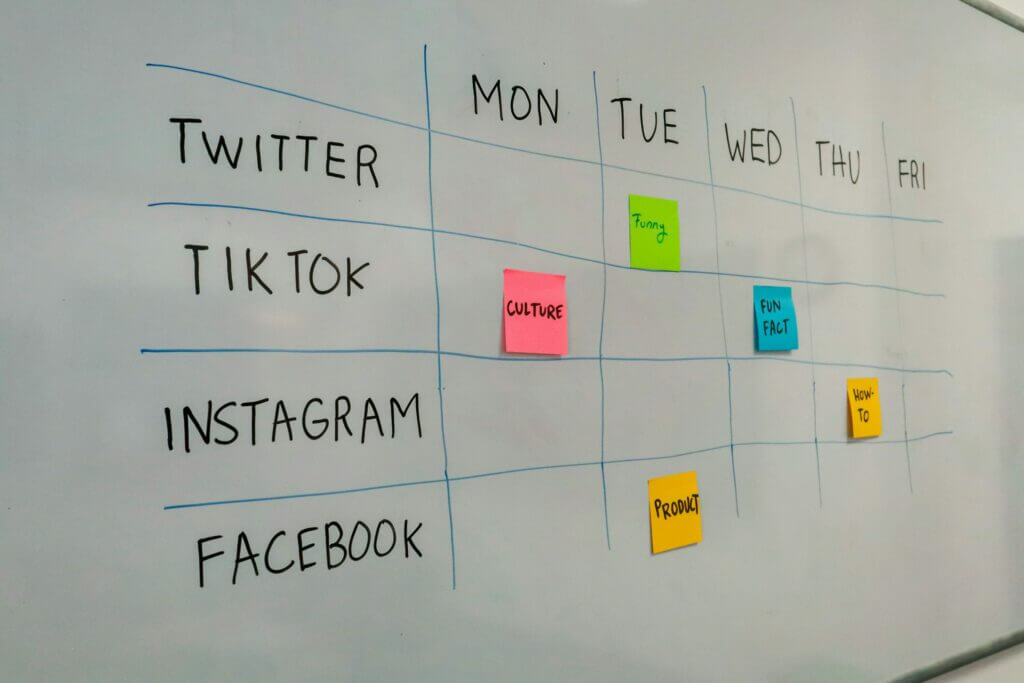Social media and I have a complicated history.
When social media first launched, I was all in. I set up accounts for clients left and right. It felt like this incredible megaphone — a direct way to share your message and reach so many people in one click. Over time, as I explored deeper into social media integration with other marketing channels, I realized it wasn’t just a tool we used — it was something using us.
And not always for the better.
As a parent, I often wish I could hand my kids the kind of childhood I had — unplugged, unfiltered, and without a digital trail following their every misstep. Mistakes are part of growing up. Do they need to live forever online?
So as a family, we’ve chosen to delay phones and social media for as long as we can. It’s not always easy — and yes, it makes us the “mean parents” sometimes — but it’s a boundary I believe in.
Now, what does that have to do with your business and social media integration?
Everything.
Because it’s a reminder to think intentionally. Not just about your kids, but about your time, your energy, and your goals.
When it comes to Social Media Integration, you first need to ask yourself:
- Who is your audience?
- Are they spending time on social media?
- If so, where are they hanging out — and why?
- Which platforms make sense for your business to be on?

At Creare, we keep it simple and strategic.
I have a presence on Facebook, Instagram, LinkedIn, and Pinterest. Every time I publish a blog, I use MeetEdgar to schedule posts across those platforms. We’ve got links on our website that point to our social accounts and vice versa — that’s great for SEO (hello, backlinks).
Our email footer also includes social icons, but beyond that? I don’t spend a ton of time trying to integrate social media into every inch of my business. Why? Because my ideal client probably isn’t discovering us via a viral reel. (Because let’s be honest — my reel game is lukewarm at best.)
More likely, they’re looking for proof. They’re checking our profiles to confirm we’re real people, with real results, and happy clients. And that’s where our social presence shines: as validation, not as a lead generator.
Now, if I had a product to sell or a specific offer that solved a clear problem, you better believe I’d run targeted ads and link it all back to my website. That’s smart social media integration. It’s focused. It’s intentional. It’s strategic.
But here’s the truth: before you start plugging your social media links into every platform, email, and piece of content you create…
You need a marketing strategy.
Not a trend. Not a template. A plan:
- What are your goals?
- How will you measure success?
- How much time can you realistically give this?
- And is it worth it?
Because sometimes? The juice just isn’t worth the squeeze.
And sometimes — with the right planning and a little effort — it is.
But only you know that answer.
Frequently Asked Questions
Why is social media important for small businesses?
Social media helps small businesses build trust and validate their brand. While it may not always drive direct leads, it offers potential clients proof that you’re active, consistent, and credible. At Creare, we treat social platforms as validation tools, not just lead generators.
Which platforms should I focus on for effective social media integration?
It depends on your audience. Ask yourself: where are they spending time, and why? For our business, Facebook, Instagram, LinkedIn, and Pinterest make the most sense. A smart social media integration strategy aligns with where your ideal client already is.
Can social media integration improve SEO?
Yes! Social media integration can support SEO through backlinks and increased visibility. When you connect your website with your social profiles — and vice versa — it signals authority to search engines and can help with search rankings.
u003cstrongu003eIs social media integration necessary for every business?u003c/strongu003e
Not always. Social media integration should be intentional. You need a marketing strategy first, not just a template or trend. If your audience isn’t active on social media or if you lack the resources to manage it well, the ROI may not be worth it.
How much time should I dedicate to social media integration?
Start with what’s realistic. We automate a lot of our content scheduling to save time. Instead of forcing social media into every aspect of our business, we focus on where it adds the most value, like sharing blog content, validating credibility, and boosting SEO.


